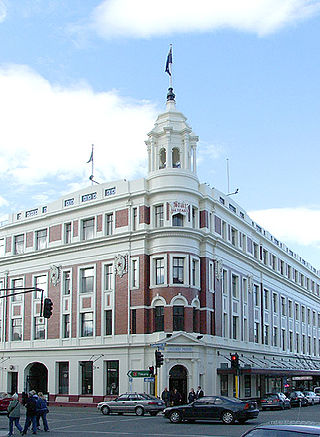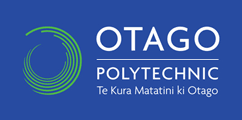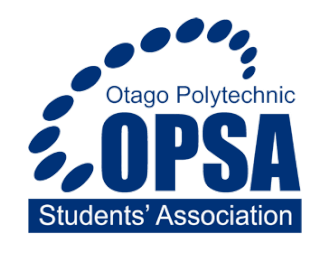
Salient is the weekly students' magazine of the Victoria University of Wellington Students' Association (VUWSA) at Victoria University of Wellington, New Zealand. Salient was established in 1938 and originally published in newspaper format, but is now published as a magazine. Salient's style and editorial position can change from year to year due to changes in editors. However, the magazine has generally taken a left-wing stance.

Dunedin is the second-largest city in the South Island of New Zealand, and the principal city of the Otago region. Its name comes from Dùn Èideann, the Scottish Gaelic name for Edinburgh, the capital of Scotland. The city has a rich Scottish, Chinese and Māori heritage.

Canta is the official magazine of the University of Canterbury Students' Association (UCSA) of the University of Canterbury, established in 1930.

The Otago Daily Times (ODT) is a newspaper published by Allied Press Ltd in Dunedin, New Zealand. The ODT is one of the country's four main daily newspapers, serving the southern South Island with a circulation of around 26,000 and a combined print and digital annual audience of 304,000. Founded in 1861 it is New Zealand's oldest surviving daily newspaper – Christchurch's The Press, six months older, was a weekly paper until March 1863.
Craccum is the weekly magazine produced by the Auckland University Students' Association of the University of Auckland, New Zealand. It was founded in 1927. The name originated from the scrambled acronym of "Auckland University College Men's Common Room Committee".
Critic Te Ārohi is the official magazine of the Otago University Students' Association (OUSA) of the University of Otago. It is freely available around both the university's campus and selected sites in Dunedin city weekly during term time. Critic is New Zealand's longest-running student newspaper, having been established in 1925. Weekly circulation is 5,000 copies, with an estimated readership of approximately 20,000.
The Aotearoa Student Press Association is an association of eight student newspapers and magazines that are published by the student associations of universities and polytechnics in Aotearoa. The Aotearoa Student Press Association has an associate membership in the New Zealand House of Representatives press gallery.

Otago Polytechnic was a public New Zealand tertiary education institute, centred in Dunedin with additional campuses in Cromwell and Auckland. Otago Polytechnic provided career-focused education and training, offering a range of New Zealand accredited postgraduate qualifications, degrees, diplomas and certificates at levels 2–10. In November 2022, it was formally merged into the new national mega polytechnic Te Pūkenga, ending its existence as an independent entity.

The Otago University Students' Association (OUSA) is the Students' Association of the University of Otago, New Zealand. OUSA was founded in 1890 to advance student interests on campus.

Otago Polytechnic Students' Association is an independent organisation founded in the 1960s for Otago Polytechnic students, and is the sole students' association at OP.

NORML New Zealand is a cannabis law reform organisation in New Zealand. It is a National Chapter of the National Organization for the Reform of Marijuana Laws (NORML).
The Otago Witness was a prominent illustrated weekly newspaper in the early years of the European settlement of New Zealand, produced in Dunedin, the provincial capital of Otago. Published weekly, it existed from 1851 to 1932. The introduction of the Otago Daily Times, followed by other daily newspapers in its circulation area, led it to focus on serving a rural readership in the lower South Island, where poor road access prevented newspapers being delivered daily. It also provided an outlet for local fiction writers. It is notable as the first newspaper to use illustrations and photographs and was the first New Zealand newspaper to provide a correspondence column for children, which was known as "Dot's Little Folk". Together with the Auckland-based Weekly News and the Wellington-based New Zealand Free Lance it was one of the most significant illustrated weekly New Zealand newspapers in the 19th and early 20th centuries.

Holly Ruth Walker is a former member of the New Zealand House of Representatives from 2011 to 2014, as a Green Party list MP. She is deputy Director of The Helen Clark Foundation, and a writer and book reviewer.
Noeline Brokenshire was a New Zealand sportswoman, who represented her country in field hockey, and as a hurdler at the 1950 British Empire Games. Later she was a gallery owner and noted woodturner, and the founder and publisher of New Zealand's first woodworking magazine, Touch Wood.

Tertiary education in New Zealand is provided by universities, institutes of technology and polytechnics, private training establishments, industry training organisations, and wānanga. It ranges from informal non-assessed community courses in schools through to undergraduate degrees and research-based postgraduate degrees. All post-compulsory education is regulated within the New Zealand Qualifications Framework, a unified system of national qualifications for schools, vocational education and training, and 'higher' education. The New Zealand Qualifications Authority (NZQA) is responsible for quality assuring all courses and tertiary education organisations other than universities. Under the Education Act 1989, The Committee on University Academic Programmes (CUAP) and the Academic Quality Agency (AQA) have delegated authority for quality assurance of university education. The Tertiary Education Commission (TEC) is responsible for administering the funding of tertiary education, primarily through negotiated investment plans with each funded organisation.
Leoni Schmidt is a South African-born New Zealand art historian and full professor in and previous Head of the Dunedin School of Art and Director of Research and Postgraduate Studies at the Otago Polytechnic and Deputy Chief Executive (Academic) at Otago Polytechnic Auckland International Campus in New Zealand.

Lisa Jadwiga Valentina Warrington is a New Zealand theatre studies academic, director, actor and author. She has directed more than 130 productions, and established the Theatre Aotearoa database. In 2014 she was awarded a Lifetime Achievement Award in the Dunedin Theatre Awards, and was three times winner of a New Zealand Listener Best Director award, including one for Tom Scott's The Daylight Atheist.

Louise Durant Petherbridge, is a New Zealand actor, director, deviser, producer and lecturer.











